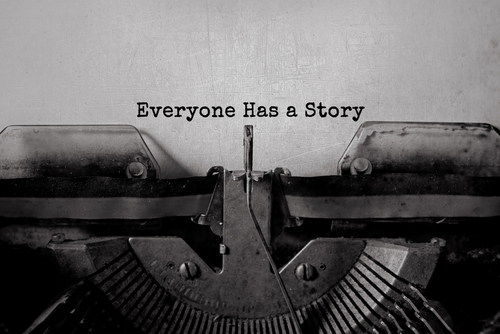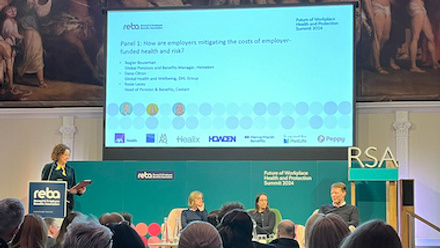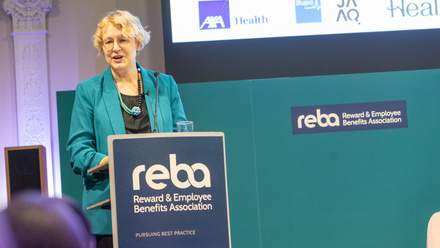Katharine Moxham: Who says insurance doesn’t pay?

The headline stats are huge – £1.5 billion paid in 2016, equivalent to £4.1 million a day – and often difficult to put into context, but group risk protection benefits (employer-sponsored life assurance, income protection and critical illness) essentially revolve around people.
This is an industry that supports people and every number tells a story. It's not just about numbers, as people are at the heart of the service, but the numbers are impressive.
Indeed, last year, 2,289 people were helped back to work with active early intervention support from an insurer. This might have been fast-track access to counselling or physiotherapy, or even treatment (as Lucy’s story below demonstrates).
Or it might have been liaison and mediation as in Tim’s story. Or, it might even have been an extraordinary ex-gratia payment as in Molly’s story. The point is, no one size fits all – people’s needs are met when they are treated as individuals and not a number or tick-box exercise.
The case studies below are real-life examples.
Lucy’s story
Lucy’s employer referred her for early intervention under their group income protection policy because she was absent from work due to a social phobia exacerbated by having visible red blood vessels on her face. She had tried various treatments, which hadn’t worked, and she felt too self-conscious to go to work.
With the agreement of Lucy’s GP, the insurer arranged for her to see a dermatologist, who recommended laser surgery which was only available privately. The insurer paid for a course of three laser treatments and Lucy returned to work part-time three weeks after the treatment. She was delighted with the results and felt confident enough to go out, meet friends and get back to normal.
Tim’s story
Tim struggled to cope at work as he was a perfectionist and was being encouraged to cut corners to get the work done more quickly. This led to his mental health deteriorating, him being unable to function or think rationally, and having to take time off work.
The group income protection insurer’s claims consultant encouraged Tim to seek medication, to challenge his beliefs about work, and to access some CBT through his private medical insurance policy. At the same time, the claims consultant liaised with Tim’s employer to highlight the specific workplace issues and discuss possible alternative job roles within the company. The claims consultant’s regular contact with Tim to help keep his focus on the end goal, and liaison with his employer led to Tim being offered an alternative position within the company that suited his personality better. He successfully returned to work without needing to make a claim under his employer’s group income protection policy.
Molly’s story
Molly put forward a claim under her employer’s group income protection policy because she had been absent from work after members of her family had been in a horrific accident in which her four-year-old daughter was killed and her mother suffered life-changing injuries. Before the accident, Molly’s mother had looked after Molly’s children each day while Molly was at work.
Although Molly’s GP confirmed that Molly was not suffering from an illness or injury which would prevent her from working in her usual role, the insurer acknowledged that the circumstances of Molly’s absence were extreme. She had suffered a bereavement, was without childcare for her other children due to her mother’s serious injuries, and also had to take time off work due to circumstances beyond her control, including going to meetings with a homicide case manager.
The insurer therefore felt it was appropriate, under such extreme circumstances, to support Molly and her employer whilst the legal process relating to the accident progressed. The insurer therefore paid an ex-gratia lump sum equivalent to six months benefit as a gesture of goodwill.
Evolution of group risk
These stories illustrate the very real difference that group risk makes to people’s lives day in and day out. These are just three early intervention stories - last year, the industry helped over 27,000 people and families through paying claims or making an active early intervention.
Group risk insurers always look to pay claims. But paying claims and early intervention isn’t all of the story. Group risk benefits have evolved beyond just a cheque, and support people in all sorts of different ways – through employee assistance programmes, online health assessments, second medical opinion services or bereavement counselling, to name just a few.
Employers with group risk protection will not only have insured their liability for paying out on the benefits they promise, but they will be well-placed to support their people better on a daily basis.
This article is written by Katharine Moxham, spokesperson for Group Risk Development (GRiD)







